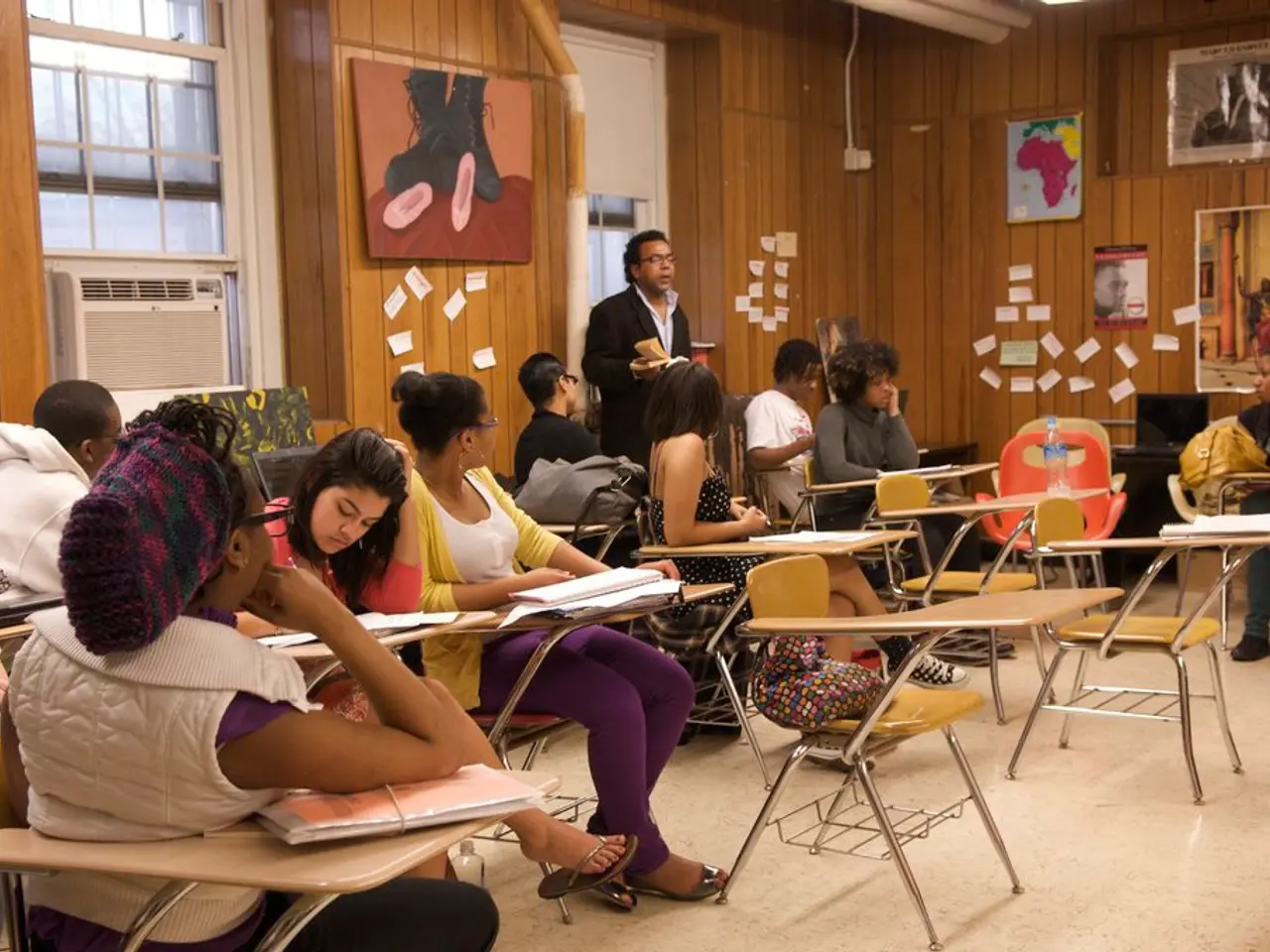Amplifying Educational Opportunities in Underdeveloped Nations
In a world where education is a fundamental human right, millions of children and adults in developing countries still face significant barriers to attending school. International aid is playing a crucial role in addressing these challenges, providing financial and technical support to foster equitable educational opportunities.
One of the most pressing issues is financial constraints. Many low-income countries have seen the impact of political will, with governments committing to free education through legislation. For instance, Sierra Leone guarantees 13 years of free schooling, allocating a substantial budget (22%) to education, demonstrating that mobilizing resources can remove cost barriers. Additionally, investing in universal free pre-primary education reduces repetition rates and improves efficiency at higher education levels, saving costs and increasing access. Public-private partnerships and NGO support can also supplement government resources to improve infrastructure and supply learning materials.
Cultural factors also pose significant obstacles. Traditional gender roles and socio-cultural barriers, such as gender discrimination and child labor, may limit educational opportunities, particularly for girls. Overcoming these barriers requires active community support and awareness campaigns to change norms that limit education access. Developing inclusive education policies, infrastructure, and curricula that accommodate children with special needs and cultural sensitivities improves inclusivity. Teacher training is another key factor in creating an encouraging learning environment, ensuring educators are equipped to handle cultural diversity and inclusivity.
Political instability can disrupt educational systems and affect school attendance. Sustained political will and legal frameworks, ensuring free and compulsory education, can secure funding and policy continuity even in unstable contexts. Decentralized and community-based education models empower local communities and schools to manage education, ensuring continuity in the face of government disruption. Leveraging technology, either low-tech like paper-based or digital where feasible, provides flexible, scalable education delivery models that can adapt to unstable environments.
Initiatives like the "Educate Girls" program in India and the "School in a Box" program by UNICEF are examples of programs specifically targeting marginalized groups to improve their educational access. The "African Virtual University" offers online courses and resources, connecting learners in remote areas to global educational content in sub-Saharan Africa.
Fostering public-private partnerships can deliver innovative solutions tailored to local challenges, attracting investment for educational infrastructure and resources. Community involvement ensures that education programs are culturally relevant and that local stakeholders take ownership of initiatives. Advocacy efforts can influence governments to prioritize education in their national agendas and amplify the voices of marginalized communities.
Collaborative efforts will enhance capacity-building, focusing on localized content that respects cultural contexts. Online learning platforms and mobile learning applications help bridge educational gaps in developing countries, offering flexible learning options and diverse course offerings. Such initiatives are essential for ensuring sustainable development and promoting equity within the global educational landscape.
In conclusion, a comprehensive approach involving governments, international organizations, and local communities is essential for improving educational outcomes. By addressing financial constraints, cultural factors, and political instability, we can create a more equitable global educational landscape, ensuring that every child has the opportunity to learn and thrive.
Professional development in education-and-self-development can be bolstered through e-learning platforms, aiding those in developing countries who face barriers to attending school. Such platforms, like the African Virtual University, provide online courses and resources to learners in remote areas, promoting flexibility and diversity.
When fostering public-private partnerships for education, investments in universal free pre-primary education can be implemented, which, in turn, reduces repetition rates and improves efficiency at higher education levels, saving costs and increasing access.




